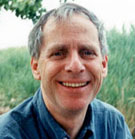Amos Tversky | |
|---|---|
 | |
| Born | Amos Nathan Tversky March 16, 1937 |
| Died | June 2, 1996 (aged 59) Stanford, California, U.S. |
| Nationality | Israeli |
| Alma mater | University of Michigan Hebrew University |
| Known for | Prospect theory Heuristics and biases |
| Spouse | |
| Awards | MacArthur Award Grawemeyer Award in Psychology (2003) |
| Military career | |
| Allegiance | Israel |
| Service | Israel Defense Forces |
| Rank | Seren (Captain) |
| Battles / wars | |
| Scientific career | |
| Fields | Cognitive psychology, Behavioral economics |
| Institutions | Hebrew University Stanford University |
| Doctoral students | |
Amos Nathan Tversky (Hebrew: עמוס טברסקי; March 16, 1937 – June 2, 1996) was an Israeli cognitive and mathematical psychologist and a key figure in the discovery of systematic human cognitive bias and handling of risk.
Much of his early work concerned the foundations of measurement. He was co-author of a three-volume treatise, Foundations of Measurement. His early work with Daniel Kahneman focused on the psychology of prediction and probability judgment; later they worked together to develop prospect theory, which aims to explain irrational human economic choices and is considered one of the seminal works of behavioral economics.
Six years after Tversky's death, Kahneman received the 2002 Nobel Memorial Prize in Economic Sciences for work he did in collaboration with Amos Tversky.[1] While Nobel Prizes are not awarded posthumously, Kahneman has commented that he feels "it is a joint prize. We were twinned for more than a decade."[2]
Tversky also collaborated with many leading researchers including Thomas Gilovich, Itamar Simonson, Paul Slovic and Richard Thaler. A Review of General Psychology survey, published in 2002, ranked Tversky as the 93rd most cited psychologist of the 20th century, tied with Edwin Boring, John Dewey, and Wilhelm Wundt.[3]
- ^ Altman, Daniel (10 October 2002). "A Nobel That Bridges Economics and Psychology". The New York Times. Retrieved 14 March 2009.
- ^ Goode, Erica (5 November 2002). "A Conversation with Daniel Kahneman; On Profit, Loss and the Mysteries of the Mind". The New York Times. Retrieved 14 March 2009.
- ^ Haggbloom, Steven J.; Warnick, Renee; Warnick, Jason E.; Jones, Vinessa K.; Yarbrough, Gary L.; Russell, Tenea M.; Borecky, Chris M.; McGahhey, Reagan; et al. (2002). "The 100 most eminent psychologists of the 20th century". Review of General Psychology. 6 (2): 139–152. CiteSeerX 10.1.1.586.1913. doi:10.1037/1089-2680.6.2.139. S2CID 145668721.